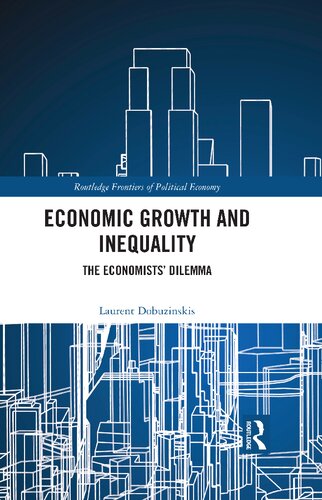

Most ebook files are in PDF format, so you can easily read them using various software such as Foxit Reader or directly on the Google Chrome browser.
Some ebook files are released by publishers in other formats such as .awz, .mobi, .epub, .fb2, etc. You may need to install specific software to read these formats on mobile/PC, such as Calibre.
Please read the tutorial at this link: https://ebookbell.com/faq
We offer FREE conversion to the popular formats you request; however, this may take some time. Therefore, right after payment, please email us, and we will try to provide the service as quickly as possible.
For some exceptional file formats or broken links (if any), please refrain from opening any disputes. Instead, email us first, and we will try to assist within a maximum of 6 hours.
EbookBell Team

0.0
0 reviewsIn an era of
increasing inequalities, and also of deep anxieties about the
consequences of two major economic crises, economists are faced with a
major question: can economic growth be achieved without inequalities? Economic Growth and Inequality
critically evaluates the economic literature on this question from a
pragmatic perspective, seeking to reconcile those who regard economic
liberties as a paramount value, and critics who object that prioritizing
these liberties leads to inequitable outcomes.
The book presents an overview of the models used by economists to
define and measure inequalities and the ongoing dialogues between
political philosophers and economists in an effort to find solutions to
the problems. It explores Rawlsian justice, Sen’s capability theory, and
the theory of rent and compares and contrasts the most often discussed
institutions and policies designed for remedying poverty and reducing
inequalities.
This book marks a significant contribution to the literature on some
of the most pressing problems of our time and will be of great interest
to readers of political economy, public policy, moral philosophy, and
history of economic and political thought.